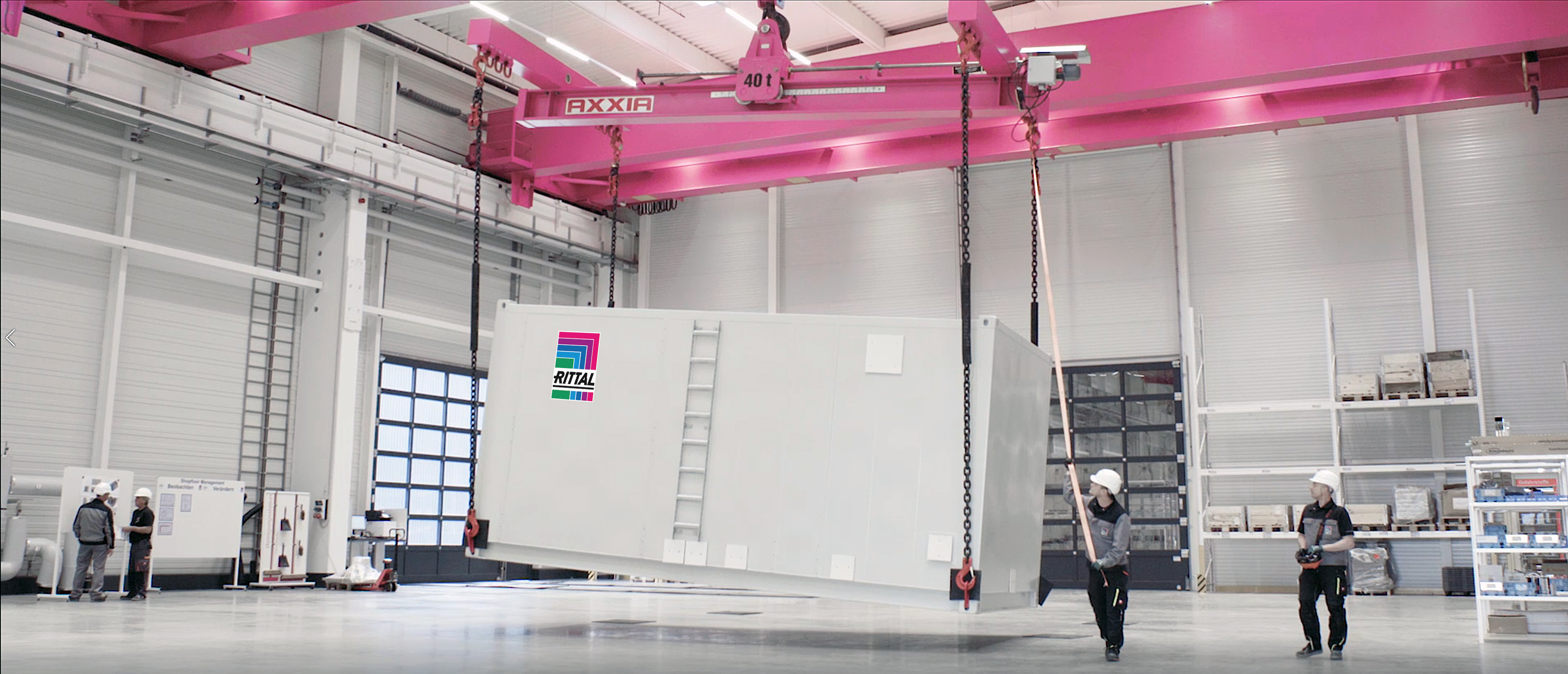
Micro Data Centres: A Strategic Approach to Elevating Data Security
In an era in which data security is non-negotiable, micro data centres (MDCs) are emerging as a strategic solution for businesses seeking to strengthen their data protection measures. MDCs offer a compact, efficient, and highly secure option for the storage and processing of data that can be easily scaled up to meet the changing data demands of organisations.
In this article, we’ll consider how MDCs enhance data security and why they are becoming an integral part of modern IT infrastructure.
Enhanced security
Data centres face a wide variety of physical and digital security risks, such as theft or physical damage to hardware, hacking attacks, system failures from hardware or software errors, and risks arising from human error.
Micro data centres can be equipped with robust security features that protect data against both physical and digital threats.
At Rittal, we provide the IT security solutions to protect the racks and enclosures, which include secure locking mechanisms, fireproofing, EMC shielding, and safeguards to detect and prevent human error.
Micro data centres can also incorporate additional physical security measures that can be monitored closely by the owner of the MDC, such as surveillance cameras and biometric access controls to prevent unauthorised access. With a smaller site, it may be simpler to manage who has access to what, and when.
Of course, encrypted communication channels are a standard feature of the IT equipment that ensures data remains secure during transmission. These comprehensive security measures make MDCs highly resilient to attempted security breaches, providing peace of mind for businesses and clients alike.
Reduced data transmission risks
A key advantage of MDCs is their ability to store data locally, which reduces the need for frequent data transmission over external networks.
Consequently, the risk of data being intercepted or leaked during transit is substantially reduced. By keeping data closer to its point of use, micro data centres not only enhance security but also improve data access speeds, which is crucial for time-sensitive operations that are vulnerable to latency.
Compliance with data protection laws
With the increasing complexity of global data protection regulations, MDCs offer a strategic advantage by providing a clearer understanding of where data is stored.
This is particularly important for businesses who operate across different jurisdictions in which different data residency and sovereignty laws may apply. Micro data centres enable organisations to comply more fully with local laws as they can choose to locate their data storage within the required geographical boundaries.
Safeguarding against data centre attacks
The localised nature of micro data centres means that data processing is kept close to the source, reducing the likelihood of successful attack as sites may be very closely monitored.
To address risks, micro data centres can implement comprehensive security measures, including intrusion detection systems, firewalls, physical access controls, and disaster recovery plans. The specific security requirements will depend on the organisation and its users, the industry, and the sensitivity of the data or equipment housed in the rack.
Regular audits and updates are also beneficial to ensure that network security measures remain effective against evolving threats.
By limiting vulnerabilities, such as such as theft or physical damage to hardware, hacking attacks, system failures from hardware or software errors, and risks arising from human error, MDCs make it more difficult for data to be compromised. This local approach to data processing and storage is particularly beneficial for industries that handle highly sensitive information, such as finance, healthcare, and local or national government.
The importance of climate control and cooling
Micro data centres must be resilient and secure across the whole data centre design, as single points of failure are a big threat. Therefore, it’s crucial to prevent the overheating of equipment or the presence of condensate.
Micro data centres require effective cooling to manage the heat that is generated by high-density servers to ensure optimum performance, extend hardware lifespan, and maintain data integrity.
Without a climate control system in place, MDCs face an increased risk of system failures, data loss, and reduced efficiency, which undermines their compact and strategic advantages.
The good news is that with the correct data centre climate control in place, equipment will function at its best, ensuring the protection of data, and the MDC will also run to a greater degree of energy efficiency.
Standardisation and Modularity
Choosing standardised and modular solutions for MDCs mean that sites can be scaled according to demand, future-proofing the operation. Furthermore, standardised solutions offer simplicity, easy integration and maintenance.
At Rittal, our scalable security features and comprehensive monitoring and electronic access measures help keep your data centre secure from accidental and intentional threats.
Next steps
At Rittal, our cutting-edge micro data centres will help you protect your data. Our micro data centre solutions are perfect for any environment! To find out more, please get in touch today.



